The weight-loss drugs guide: how to avoid the common side effects
Many of us know someone on Mounjaro, Ozempic or Wegovy, but do all users realise the weight-loss injectable drugs can affect everything from your mood to your bones? Here’s what to do.

Drugs that promise rapid and effortless weight loss once seemed like the stuff of fairytales. Now, even if we’re not “on the pen” ourselves, most of us know someone who is taking the much-hyped GLP-1 agonist injectables – better known by the brand names Wegovy, Ozempic and Mounjaro – which reduce appetite and food intake so that weight is lost with dramatic effect.
Elon Musk, Oprah Winfrey and Robbie Williams have all openly discussed using them.
Studies have shown they can lead to a weight loss of up to 20 per cent for some people with obesity.
They work by mimicking the hormone glucagon-like peptide-1 (GLP-1) in slowing down stomach emptying, suppressing hunger and leaving you feeling full so any urge to overeat is curbed.
As calorie intake nosedives, surplus kilograms melt away with unprecedented speed.

But the drugs come with a range of side effects and experts are concerned that the status of anything from your mood and muscles to your bones and breath may change for the worse if you take them.
Some of these side effects, including gastrointestinal complaints such as nausea, tend to disappear within weeks as the body adjusts to the medication, but some persist for longer and even return if doses are increased. They also can take a few weeks to subside once you stop. Here’s how to spot and offset the risks.
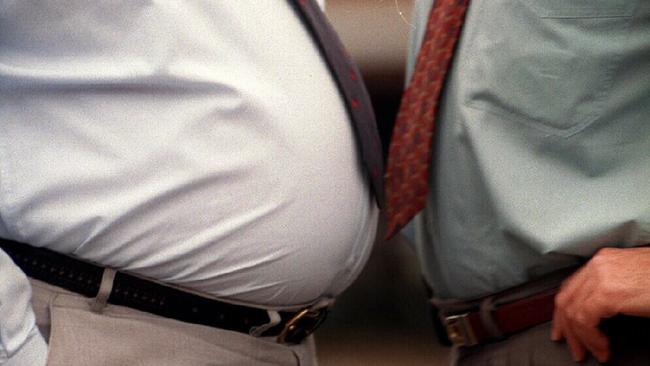
You need to weight train to offset muscle loss
In midlife, muscle mass declines naturally, but this process can be accelerated for those who are shedding kilos rapidly on weight-loss drugs. The jury is out on whether the drugs themselves are responsible for muscle loss.
One paper in the journal Frontiers in Endocrinology showed that semaglutide, the generic name for Wegovy and Ozempic, actually helped to preserve muscles. (Mounjaro is the brand name of the drug tirzepatide, which works in a similar way.)
However, with University of Washington scientists suggesting muscle proteins are broken down faster than they can be rebuilt when we lose weight quickly, it is inevitable that some of the kilograms shed on the new drugs will be from what researchers term “non-fat mass”, which includes muscle and bone.
A team of US and British researchers revealed in the Diabetes, Obesity and Metabolism journal that up to one-third of weight lost on GLP-1-based drugs was not body fat but other tissue, including muscle and bone, while a study of obese people in the New England Journal of Medicine suggested an average of 6.8kg of lean tissue as well as 10.4kg of fat were lost during a 68-week trial.

Neglecting muscle health can have catastrophic repercussions from middle age onwards. Our muscles influence our metabolism and fat-burning ability but also the efficiency with which our bodies control blood sugar and offset conditions including type 2 diabetes and cardiovascular disease. To counter a downturn in muscle mass you will need to take up or ramp up resistance training.
“With my clients on GLP-1 drugs, I make sure they cut back on cardio and focus more on strength work,” says Dalton Wong, performance coach at the Nexus Club in London.
The focus should be to work the large muscle groups with compound movements that work multiple joints and muscles simultaneously. “In three to four sessions a week of resistance training, aim for exercises such as lunges, squats and thrusters,” Wong says. “Working small muscles such as the biceps is not what you need to maintain muscle strength.”

Eat more protein (but not too much)
Protein is essential for muscle maintenance and also helps to fill you up. “Aim for three varied meals a day when taking weight-loss drugs,” dietitian and British Dietetic Association spokesman Duane Mellor says.
When it comes to calculating how much protein you need daily while taking GLP-1-based medication, you should base intakes on your target weight rather than your present weight. Eating too much of anything, protein included, will not aid weight loss. “As a general guide I would suggest 1.5g of protein for every kilogram of your target weight,” Mellor says.
“In practical terms this means that about one-quarter of your daily energy intake is from protein foods.” Good sources include fish and lean meat, nuts and seeds, tofu, pulses, eggs and grains.
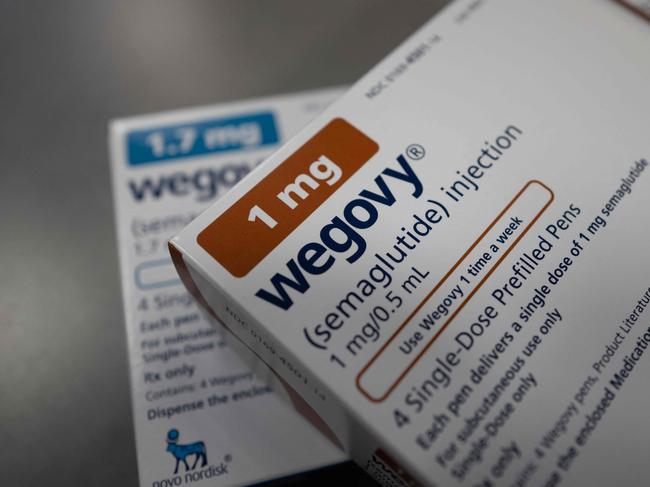
Make sure you look after your bones
It is not only muscles that bear the brunt of rapid weight loss; our skeleton takes a hit, too. Last week experts at the Royal Osteoporosis Society warned that taking Ozempic led to loss of bone as well as fat.
Researchers in Britain and the US have outlined how common bone loss is when taking GLP-1-based drugs.
“Losing a lot of weight very quickly means there is often a corresponding decrease in bone density,” Mellor says. “In the long term that predisposes people to a greater risk of osteoporosis and fractures as they age.”
High-impact weight-bearing exercise, which involves being on your feet and adding an additional force to strengthen the skeleton, is essential for maintaining healthy bones. Jumps, dancing, jogging, weightlifting and gardening are all good for preserving bone health.
Ensure you also get the recommended 700mg a day of bone-building calcium found in dairy, almonds, sesame seeds, dried fruit, pulses, fortified soya and nut drinks.

Constipation and nausea are common side effects
Clinical trials of semaglutide have found side effects to include constipation, nausea, vomiting, headaches and diarrhoea. “Nausea is the big one, with a lot of people taking the medication experiencing it,” Mellor says.
“In many cases it is a result of eating food as quickly as they used to when in fact you need to slow down the speed of eating when on these drugs to avoid nausea and other side effects.” That should stem such symptoms, he says.
Since digestion and emptying of stomach contents is slowed, constipation is also common.
“Bowel movements are slower and stools can be harder, particularly if you are also dehydrated,” Mellor says.
“Getting enough fibre in your diet with wholegrains and vegetables, drinking enough and staying active will all help to treat and prevent constipation.”
Speak to your general practitioner if symptoms such as nausea or diarrhoea continue because the dose of your medication may need to be adjusted.
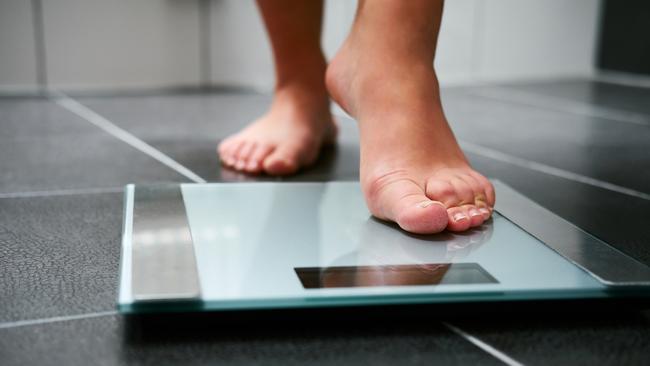
Be prepared for mood changes
Despite losing weight, some people have described experiencing a downturn in mood when taking weight-loss drugs, sometimes characterised by increased anxiety and anhedonia, a general apathy towards previously enjoyed hobbies and activities. Wong has noticed this with some of his clients.
“By their nature, weight-loss drugs are designed to dull the desire for food and drink but for some people it seems to affect emotions and enthusiasm for other things, including exercise,” he says.
University of Oxford department of psychiatry clinical lecturer Riccardo De Giorgi says GLP-1-based drugs have a complex effect on the brain.
“They may be different in somebody with pre-existing depression compared to someone with no prior mental health disorder,” he says.
It’s not all bad news, though. A recent review of evidence by De Giorgi and his colleagues published in Nature Health showed the drugs could be beneficial for a range of cognitive and mental health disorders.
“Preliminary research suggests these medications may improve cognitive function, possibly across a range of disorders including dementia and severe mental illnesses such as schizophrenia and mood disorders,” De Giorgi says. “They may also support the treatment of addiction disorders, such as alcohol and substance misuse, for which we currently have very few, if any, pharmacological options.”
Side effects are hugely individual and it’s important to speak to your GP if you are experiencing adverse changes to your mental health, he says.
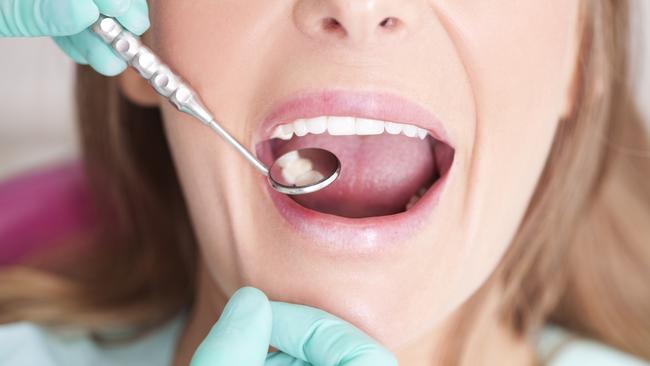
Beware bad breath and gum problems
“Taking weight-loss drugs is linked to a high probability of dry mouth, also called xerostomia,” says dentist Edward Li, clinic director of the ABC Smile clinic in London.
“This is a result of reduced saliva in the mouth and, since saliva is like a miracle alkaline serum that buffers acid and protects our teeth and gums, a lack of it can increase the risk of tooth decay and gum disease over time.”
A dry mouth is also exacerbated by dehydration. “People don’t feel thirst in the same way and so tend to drink less fluids,” Li says.
Bad breath or halitosis is another side effect of mouth dryness. “The digestive system slows too, as your body isn’t digesting as much food as usual,” Li says. “That means that undigested food sits in the digestive tract for longer and the resultant smells from this can linger, exacerbating halitosis.”
Having a regular dental check-up – and making sure your dentist knows you are taking weight-loss medication – is important, Li says. “Good dental hygiene is essential so brush and floss regularly.”
Pay attention to fluid intake and include water-rich foods such as salad vegetables, fruit and soups in your diet to avoid dehydration.
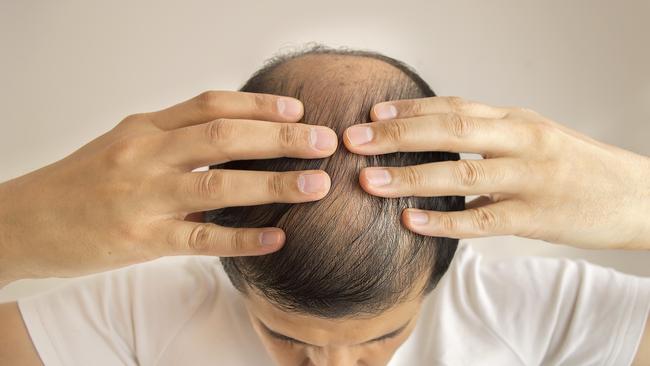
Excessive hair loss is common
Consultant trichologist Anabel Kingsley says she sees a lot of people who are experiencing excessive hair loss while taking weight-loss drugs. “Any time you lose weight very rapidly, hair is likely to fall out,” Kinglsey says.
“Because your hair isn’t an essential tissue, your body neglects it whenever nutrient intake is low and shuts off hair cell production to conserve energy.” A mass shedding of hair two to four months later is common.
“Usually this is temporary,” Kingsley says, “but if the calorie deficit is constant and ongoing, there’s an added risk that for people who already have male or female pattern hair loss, it could accelerate it.”
Nutrient deficiency – a risk if you reduce your food intake and variety – also can affect the quality and texture of your hair, Kingsley says. “Have blood tests and consult a dietitian if you think you might be at risk.”
Healthy fats, wholegrains and plenty of fruit and vegetables are essential for hair health.
Be careful with contraception
Last week, health officials warned that GLP-1 drugs could stop the contraceptive pill working and lead to unwanted pregnancies.
Britain’s Medicines and Healthcare products Regulatory Agency issued an alert stating: “Mounjaro may reduce the effectiveness of oral contraceptives in those who are overweight. Therefore, those taking Mounjaro who are overweight and are using an oral form of contraception are advised to also use a non-oral form of contraception.” Mounjaro is the only GLP-1 drug that appears to reduce the effectiveness of the pill, according to the alert.
Experts say that is because it works slightly differently from the others and has a greater impact on different hormones in the body.
However, GLP-1 drugs may also make it harder to absorb the contraceptive pill because of side effects such as nausea and diarrhoea. The MHRA also stated that the drugs must not be taken during pregnancy, while trying to conceive or during breastfeeding.

Expect your complexion to change
Complaints of “Ozempic face” – a gaunt, deflated appearance because of volume loss – are widespread. Zainab Laftah, a consultant dermatologist at HCA The Shard hospital in London, says they are real concerns.
“We are seeing an emerging trend of skin side effects associated with all of the GLP-1 receptor agonist drugs and these include skin sagging and dryness, particularly in the face,” she says. “Primarily they are the result of rapid fat loss leading to decreased facial volume and reduced skin elasticity.”
While the medication itself is not directly responsible for these effects, the sharp weight reduction they induce can outpace the skin’s ability to adapt, resulting in gauntness.
“Additionally, the appetite-suppressing effects of GLP-1 drugs may lead to decreased intake of essential nutrients and fluids, contributing to skin dryness and diminished elasticity,” Laftah says.
“Eating enough protein will help to support the production of collagen and elastin, which are vital for maintaining skin elasticity.”
To avoid the dehydration that also can affect skin appearance, she recommends drinking one to two litres of fluids each day.
THE TIMES
More Coverage





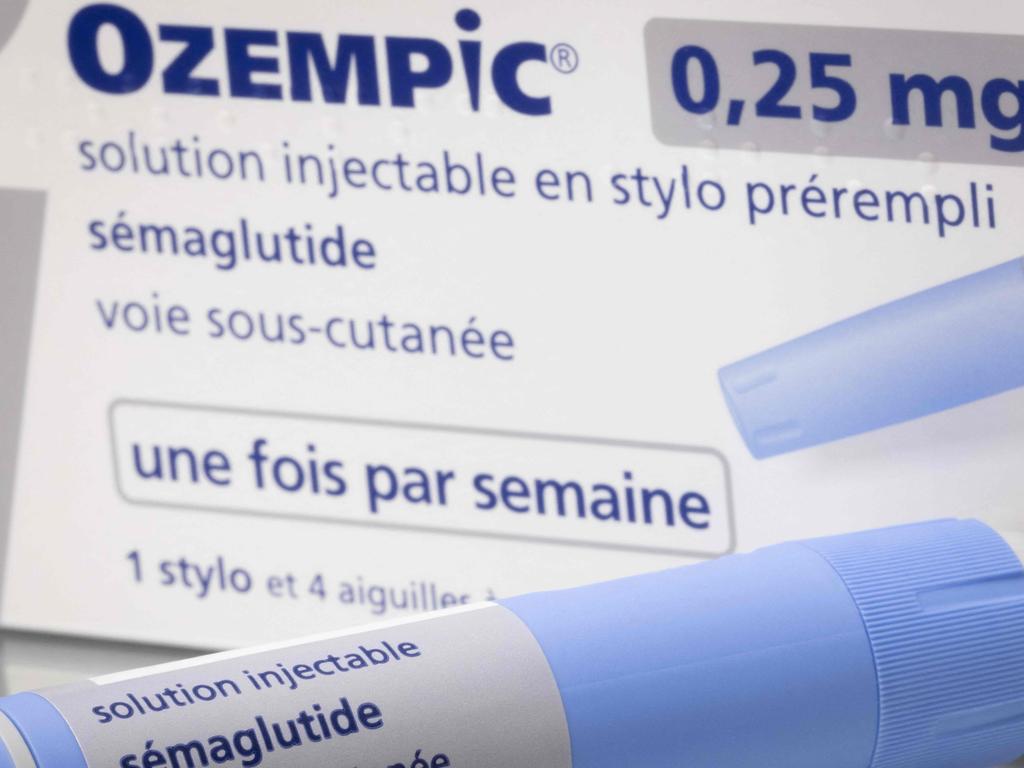
To join the conversation, please log in. Don't have an account? Register
Join the conversation, you are commenting as Logout